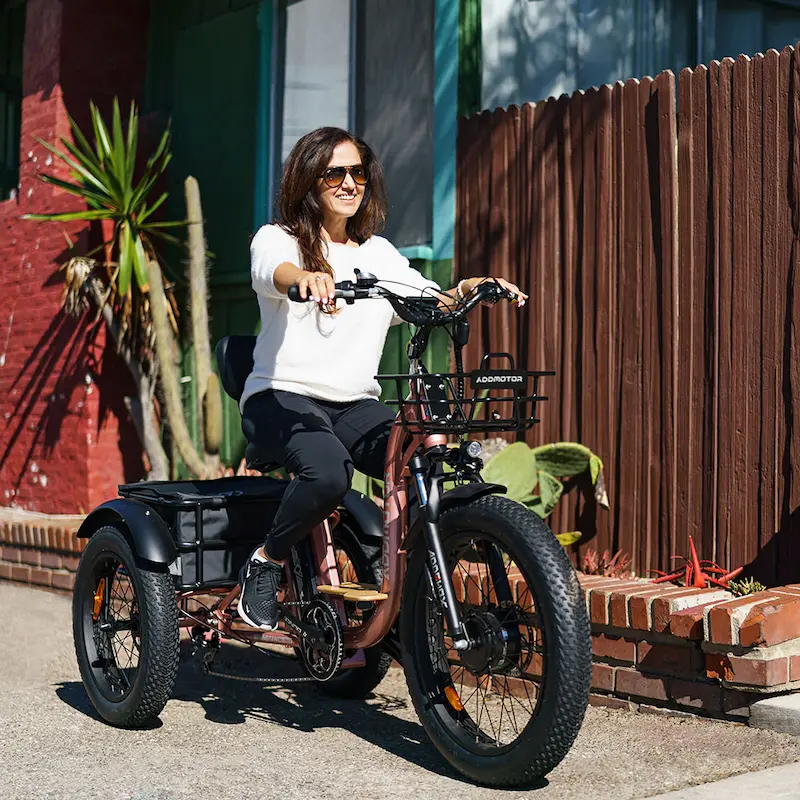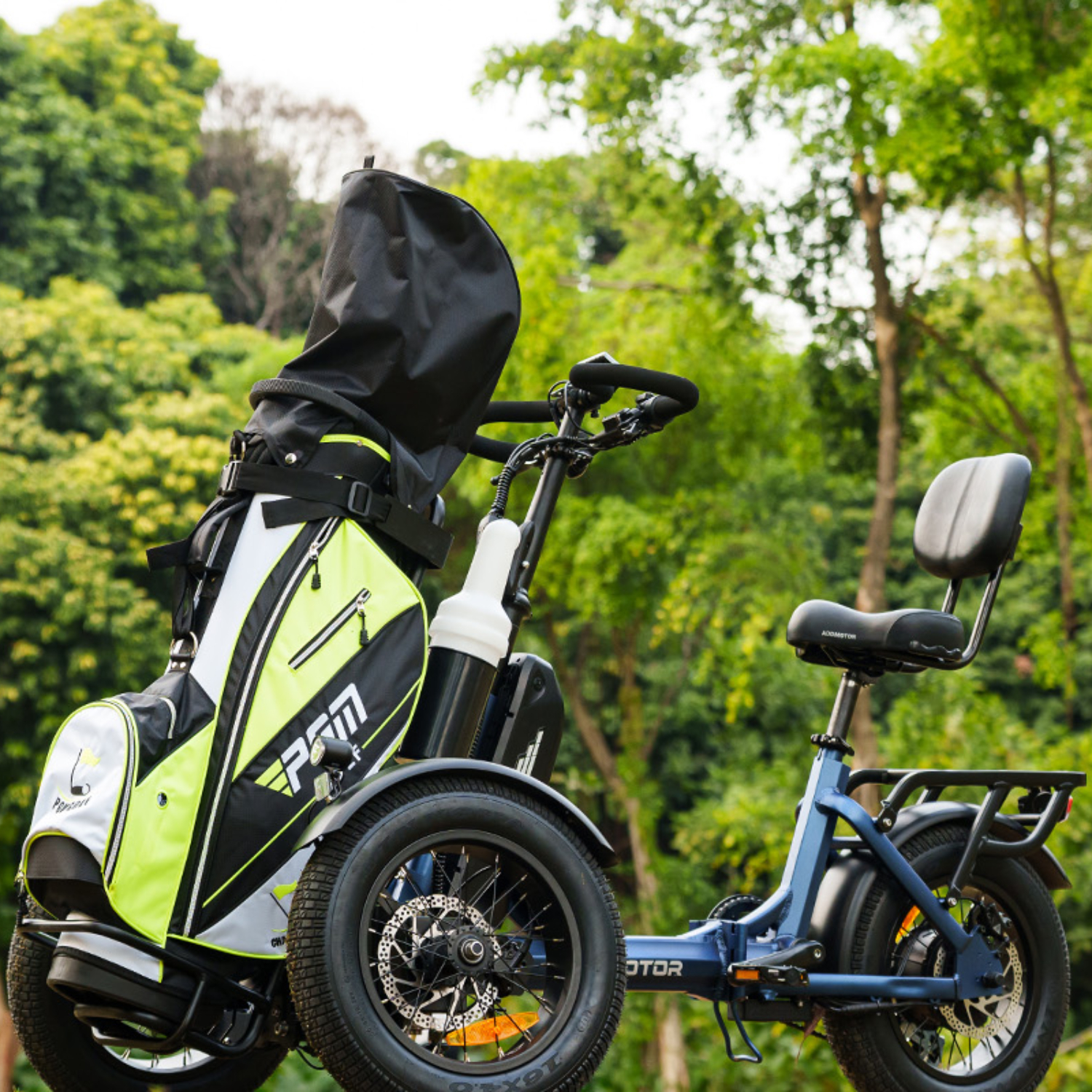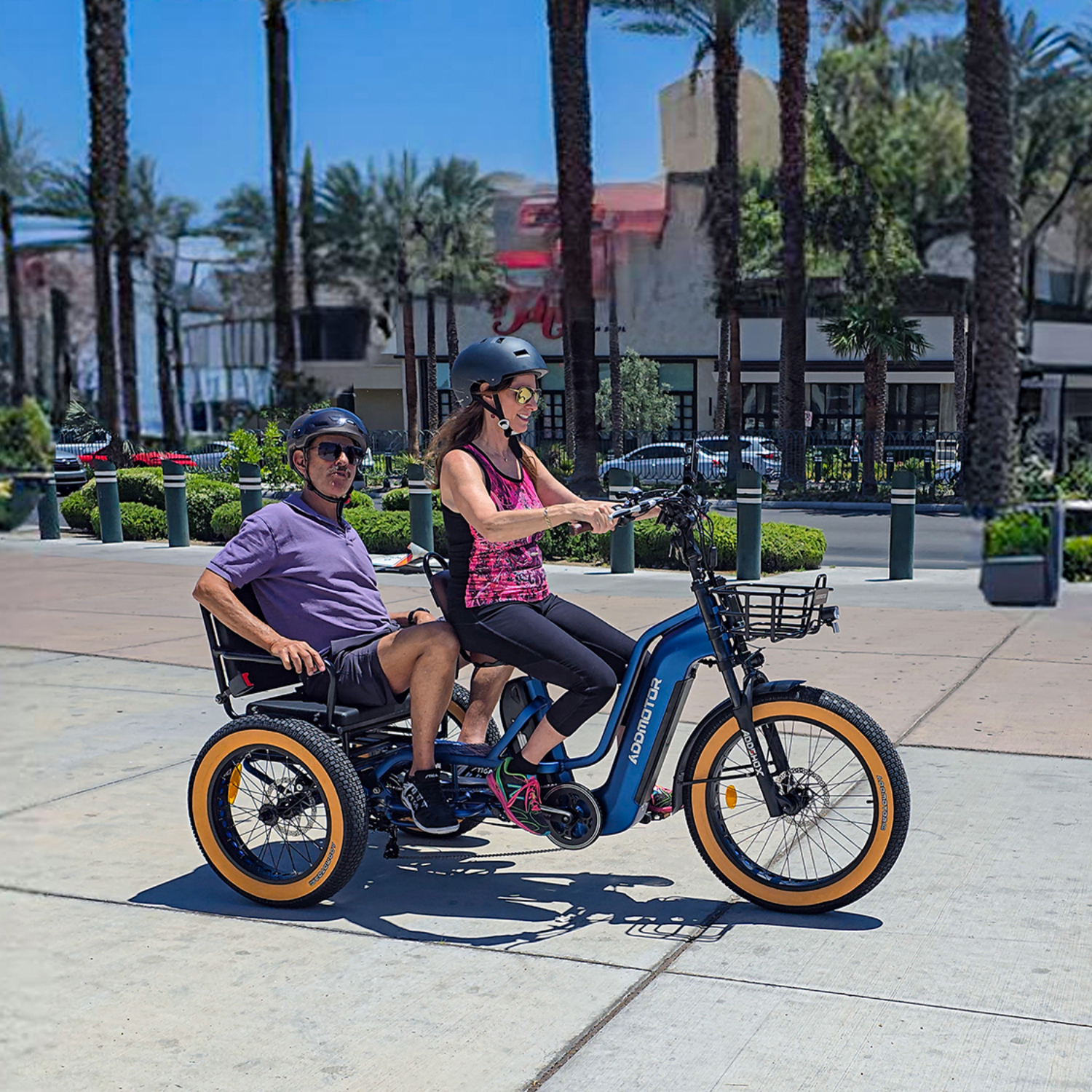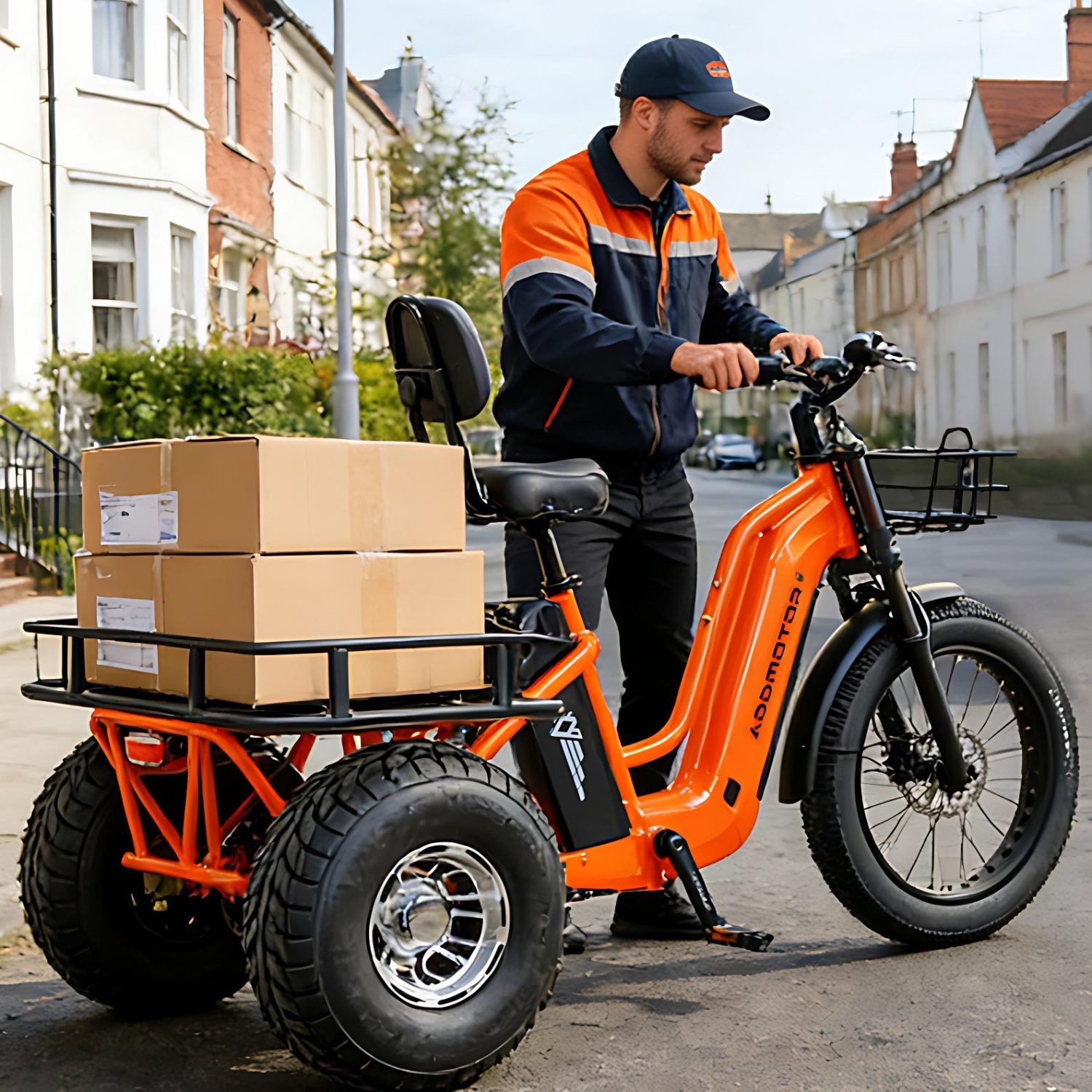Are electric trikes legal in the U.S.?
By Addmotor | 28 December 2022 | 0 Comments
Electric bicycles are a popular means of commuting, fitness, and recreation. Electric trikes are also considered fun, safe and eco-friendly alternatives to fuel-consuming cars and motorcycles. With more and more people turning to e-trikes for commuting, a question that is often asked is, “are electric trikes legal in the U.S.?” The answer is “they are”. Yet, similar to other transport, there are some security guidelines for riding and maintaining an electric tricycle.
Here we answer your concerns such as, “do you need a license for an electric trike?” and “what is electric trike law in specific states?” We also guide you on the basic knowledge of speed limitations, registration, and other safety guidelines.

Electric trikes classifications
Electric trikes are defined as bicycles that are equipped with a seat or saddle, fully operable pedals, and an electric motor that is less than 700 watts. There are three classifications of electric bicycles according to the law;Class 1 e-bicycles: A class-1 electric trike has a maximum support of 20 miles per hour from its motor. This means that the motor of an electric tricycle should assist the rider when the rider is continuously pedaling; however, when the bike reaches a speed of 20 miles per hour, the motor will cease to provide more assistance and will keep the speed steady at 20 mph.
Class-2 e-bicycle: Electric bicycles are categorized as class-2 when they have motors that are used exclusively to propel the bicycle. The motor in class-2 electric bicycles is not able to assist once the bicycle reaches the speed of 20 miles per hour.
Class-3 Electric bicycle: A class-3 electric trike provides continuous assistance as long as the rider keeps pedaling. The motor in class-3 bicycle assists at the maximum speed of 28 miles per hour. Class-3 e-trikes are the most restricted e-bikes and there are additional security measures required by the rider when driving these trikes.
Rules and regulations regarding electric tricycles
The market for e-bikes grew over 23% over one year in 2020 with more rises expected to occur in near future. This growth in popularity has enforced U.S. states to implement e-bike regulations. Now, class 1 and 2 e-bicycles are the most common types of electric vehicles, and class-3 e-bikes are considered alternatives for mopeds and bikes which is why they have more security requirements.Here are some basic guidelines for riders when riding in U.S. states:
There is a legal age requirement to ride an e-trike especially if you are riding class 2 and 3 electric bikes. The age restriction can vary in different states. In Alabama, Alaska, Michigan, North Carolina, New Hampshire, Utah, and Virginia, riders can be 14 or above to ride all e-bikes unaccompanied. Six U.S States require the rider to be above 15 and 15 U.S states command that riders above 16 years should ride an electric tricycle. The Electric trike law in most of these states implies that riders below the age of 16 and 18 should wear a safety helmet.
The Federal Electric trike law and the tiered classification system adopted by many states imply that the maximum speed limit for class 1 and 2 electric trikes is 20 miles per hour. The legal speed limit for class-3 electric trikes is 28 miles per hour. According to federal law, e-bikes can travel faster when the riders use a combination of motor power and human pedals yet the riders need to consider the local speed limit in there are. There are speed limitations near areas such as schools, which need to be complied with.
Do you need a license for an electric trike?
The registration of electronic bikes and trikes is necessary for all the states that define e-bikes and e-trikes as vehicles. Currently, Alabama, Alaska, Hawaii, Massachusetts, Louisiana, North Dakota, New Mexico, Tennessee, and Wisconsin require riders to register their e-bikes. These states also require a license to operate an electric tricycle.Many states in the U.S. require riders and passengers to wear safety helmets. West Virginia, Maryland, Connecticut, Massachusetts, and Louisiana require riders of all age riding bikes of all classifications to wear safety helmets.
Electric bicycle insurance is also a necessity in many states in the U.S. states such as West Virginia, North Dakota, and New Mexico require insurance for electric bikes.
The final word
With the rising popularity of electric bikes and trikes throughout the world, it has become increasingly crucial to be aware of the electric trike law and policies concerning e-trikes. The importance of this knowledge centers around safety and security which is why every person who rides an electric tricycle or is considering buying one should get to know the rules and regulations about electric trikes in their state and the U.S.Leave a Reply
Your email address will not be published.Required fields are marked. *
Latest Stories




